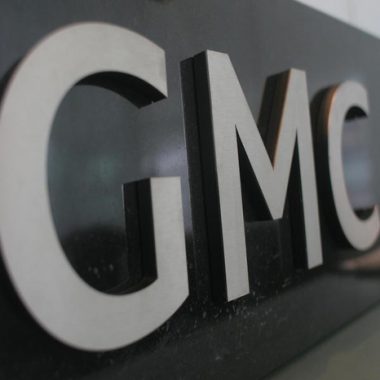The Department of Health has launched a consultation into reducing the number of healthcare regulators in the UK from a current nine bodies down to ‘three or four’.
The regulators subject to consultation include the GMC, which could face merging with other bodies including the Nursing and Midwifery Council, as first reported in February.
The DH consultation, opened today and closing on 23 January, suggests that the Professional Standards Authority (PSA) should recommend a new structure on the basis of consultation responses.
It said: ‘The four UK governments believe there is a case for exploring a reduction in the number of regulatory bodies, possibly to three or four.’
According to the DH, a reduction in the number of regulators ‘would deliver a more consistent approach to regulation as well as delivering savings in the cost of regulation’ and said that it would also ‘simplify the landscape, making it clearer to employers, patients and the public who to contact when they have concerns’.
The DH also suggested fewer regulators would ‘bring greater consistency of standards and in the fitness to practise decision-making process’ which would lead to ‘a fairer outcome for all’.
The DH is looking to give regulators a greater range of powers, including flexibility to choose how to deal with individual fitness-to-practise cases – from taking no action to imposing conditions on the practitioner’s registration.
The new proposals also suggest that some regulators are duplicating the work of higher education institutes by having a ‘detailed oversight of the course’. Instead, the regulators will ensure higher education institutes simply produce ‘high quality professionals who are suitable for registration’.
The document said: ‘While fitness to practise must remain a key function for the regulators, giving them powers to handle fitness to practise cases in a proportionate way will allow for a more preventative and supportive approach. This will provide the time and resources for regulators to support the ongoing professional development of all registrants.’
Announcing the consultation, health minister Philip Dunne said that the ‘current regulatory system is not fit for a modern healthcare service like our NHS’, adding: ‘That’s why we want to understand what needs to change to make it clearer and simpler for the regulators and healthcare professionals, and to ensure patients have the best possible protection.’
GMC welcomed the consultation, with chief executive Charlie Massey adding that ‘as it stands the legal framework is too prescriptive and makes many of our processes slow, inflexible and heavy-handed’.
He said: ‘We have done what we can to modernise the way that we work, such as reducing the number of unnecessary investigations, but the current law is a roadblock preventing further improvements.
‘What we need is legislation that allows us to be swift and efficient in carrying out or primary duty – keeping patients safe – while reducing the burden on doctors. We hope the Government will act on their commitment and introduce legislation that is fit for purpose as soon as possible.’
Health secretary Jeremy Hunt told the House of Commons Health Committee this afternoon that the changes proposed in the consultation ‘will require some legislation’.
MDDUS senior lawyer and practice development manager Joanna Jervis welcomed the consultation, adding that ‘while legislative changes to the current framework are undoubtedly required, the key factors at the heart of any changes should be performance, fairness, transparency and patient safety’.
The focus, she said, ‘must be on ensuring that the regulatory framework is fit for purpose and retains appropriate expertise in relation to each of the very different healthcare professions subject to regulation’.
MPS senior medicolegal adviser Dr Pallavi Bradshaw also cautioned that ‘an amalgamation exercise which could result in the specific expertise of each profession’s regulator being lost would be concerning’.
She added: ‘Any new regulators, replacing the existing nine, would need to be able to distinguish between the hugely differing roles within the many professions they would oversee.
Pulse October survey
Take our July 2025 survey to potentially win £1.000 worth of tokens













